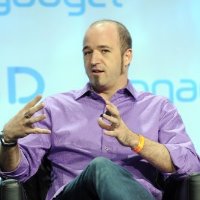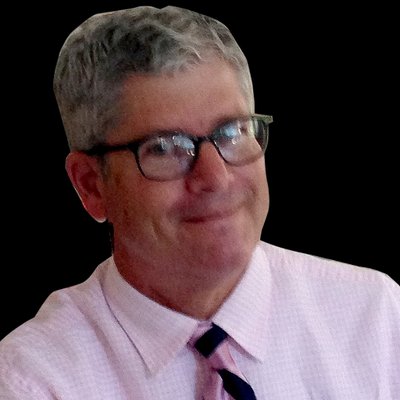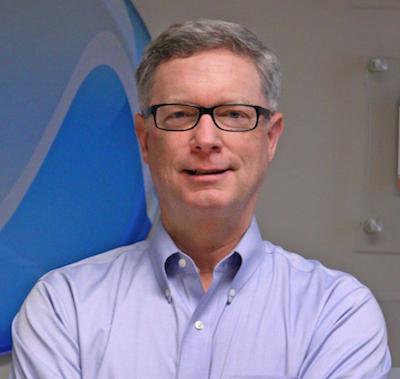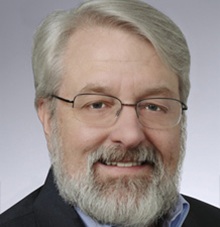 Someone knows you are reading this. They know what device you are using. They know if you make it all the way to the end (which I hope you do!). They may be watching you read it, and listening to you. They know exactly where you are right now, and where you've been. As FBI Director James Comey recently proclaimed, "there is no thing as absolute privacy in America." Director Comey was speaking about legal snooping, authorized by the courts and carried out by law enforcement agencies, but, in many ways, that may be the least of our privacy concerns...
Someone knows you are reading this. They know what device you are using. They know if you make it all the way to the end (which I hope you do!). They may be watching you read it, and listening to you. They know exactly where you are right now, and where you've been. As FBI Director James Comey recently proclaimed, "there is no thing as absolute privacy in America." Director Comey was speaking about legal snooping, authorized by the courts and carried out by law enforcement agencies, but, in many ways, that may be the least of our privacy concerns...
Latest News
Is Use of the Open Source GPL License Declining?
 A little while ago I saw an interesting tweet from Stephen O'Grady at RedMonk on the state of open source licensing, including this graph. This graph shows how license usage has changed from 2010 to 2017. In reading it, it is clear that usage of the GPL 2.0 license, one of the purest copyleft licenses around, has more than halved in usage. According to the chart it would appear that the popularity of open source licensing has subsequently shifted to the MIT and Apache licenses. There has also been a small increase in GPL 3.0 usage. So, what does all this mean?
A little while ago I saw an interesting tweet from Stephen O'Grady at RedMonk on the state of open source licensing, including this graph. This graph shows how license usage has changed from 2010 to 2017. In reading it, it is clear that usage of the GPL 2.0 license, one of the purest copyleft licenses around, has more than halved in usage. According to the chart it would appear that the popularity of open source licensing has subsequently shifted to the MIT and Apache licenses. There has also been a small increase in GPL 3.0 usage. So, what does all this mean?
- Login to post comments
Health Care in a Post-Privacy World
- Login to post comments
Open Source in Death and Beyond
 Benjamin Franklin was known to say, "In this world nothing can be said to be certain, except death and taxes." There are open source solutions for completing your taxes, such as Open Tax Solver, but what about the other side of that quote? What does open source have to do with death? It's quite a lively subject, it seems. I know you are just dying to know, so let's dig in. We all experience death and it becomes a long drawn out process of paperwork and burial rituals that we hope doesn't weigh too much on the loved ones we've left behind. The open source community has given this process some thought, not surprisingly. They've lent their mindshare towards rethinking how to deal with that final episode of life. It turns out, not only is open source great in life, but it comes in handy in death, too...
Benjamin Franklin was known to say, "In this world nothing can be said to be certain, except death and taxes." There are open source solutions for completing your taxes, such as Open Tax Solver, but what about the other side of that quote? What does open source have to do with death? It's quite a lively subject, it seems. I know you are just dying to know, so let's dig in. We all experience death and it becomes a long drawn out process of paperwork and burial rituals that we hope doesn't weigh too much on the loved ones we've left behind. The open source community has given this process some thought, not surprisingly. They've lent their mindshare towards rethinking how to deal with that final episode of life. It turns out, not only is open source great in life, but it comes in handy in death, too...
- Login to post comments
The Difference Between Open Source Development and Deployment
 For many years, I was a Smalltalk programmer, and that experience gives me a different viewpoint from which to observe ideas in the programming world. For example, the idea that source code should be stored in text files took some getting used to. We as programmers often make a distinction between "development" and "deployment," specifically the idea that we develop software in one place using tools that are different from the place and tools that we use after we deploy the software. In the Smalltalk world, there is no such difference...
For many years, I was a Smalltalk programmer, and that experience gives me a different viewpoint from which to observe ideas in the programming world. For example, the idea that source code should be stored in text files took some getting used to. We as programmers often make a distinction between "development" and "deployment," specifically the idea that we develop software in one place using tools that are different from the place and tools that we use after we deploy the software. In the Smalltalk world, there is no such difference...
- Login to post comments
Could Billion Dollar EHRs Bankrupt the Country?
 Earlier this year, Monmouth University conducted a survey to determine which issues were most important as the country transitions to a new presidential administration. Among all the potential concerns Americans now face, the issue that rises to the top is healthcare costs. How acute a concern is this? It’s significant enough that, when asked the open-ended question, “turning to issues closer to home, what is the biggest concern facing your family right now?”, 25 percent of respondents made it their number one issue...
Earlier this year, Monmouth University conducted a survey to determine which issues were most important as the country transitions to a new presidential administration. Among all the potential concerns Americans now face, the issue that rises to the top is healthcare costs. How acute a concern is this? It’s significant enough that, when asked the open-ended question, “turning to issues closer to home, what is the biggest concern facing your family right now?”, 25 percent of respondents made it their number one issue...
- Login to post comments
Your Smartphone or Your Life...or, the Dangers of Addictive Technology
 Rep. Jason Chaffetz's recent remarks suggesting that some Americans should invest in their health instead of in a new iPhone reminded me of nothing so much of the old Jack Benny bit, where Benny is accosted by a robber who threatens "your money or your life." When Benny doesn't immediately respond, the robber prompts him, and the supposedly miserly Benny snaps back, "I'm thinking it over." I suspect that, like Mr. Benny, many of us would have a tough choice between our smartphones (and our other devices) and our health. It may be not so that we're miserly as it is that we're addicted.
Rep. Jason Chaffetz's recent remarks suggesting that some Americans should invest in their health instead of in a new iPhone reminded me of nothing so much of the old Jack Benny bit, where Benny is accosted by a robber who threatens "your money or your life." When Benny doesn't immediately respond, the robber prompts him, and the supposedly miserly Benny snaps back, "I'm thinking it over." I suspect that, like Mr. Benny, many of us would have a tough choice between our smartphones (and our other devices) and our health. It may be not so that we're miserly as it is that we're addicted.
- Login to post comments
3 Projects Successfully Using Mesh Network Technology
 If you think about it, isn't the Internet just a giant mesh network? If we deviate slightly from the standard definition that requires that all nodes to assist in data distribution, the answer is a resounding yes. However, traditional network technologies and the vendor-provided hardware required to run them is often far too expensive to deploy without deep pockets. Open source software aims to solve these problems and enable network connectivity to marginalized groups all around the world...
If you think about it, isn't the Internet just a giant mesh network? If we deviate slightly from the standard definition that requires that all nodes to assist in data distribution, the answer is a resounding yes. However, traditional network technologies and the vendor-provided hardware required to run them is often far too expensive to deploy without deep pockets. Open source software aims to solve these problems and enable network connectivity to marginalized groups all around the world...
- Login to post comments
Halamka's Next Steps for the National Healthcare IT agenda
 At HIMSS, I listened carefully to payers, providers, patients, developers, and researchers. Below is a distillation of what I heard from thousands of stakeholders. It is not partisan and does not criticize the work of any person in industry, government or academia. It reflects the lessons learned from the past 20 years of healthcare IT implementation and policymaking. Knowing where we are now and where we want to be, here are 10 guiding principles.
At HIMSS, I listened carefully to payers, providers, patients, developers, and researchers. Below is a distillation of what I heard from thousands of stakeholders. It is not partisan and does not criticize the work of any person in industry, government or academia. It reflects the lessons learned from the past 20 years of healthcare IT implementation and policymaking. Knowing where we are now and where we want to be, here are 10 guiding principles.
- Login to post comments
Top 10 FOSS Legal Stories in 2016
 The year 2016 resulted in several important developments that affect the FOSS ecosystem. While they are not strictly "legal developments" they are important for the community. For one, Eben Moglen, the general counsel of the Free Software Foundation, stepped down. Eben has been a leader on FOSS legal issues since the late 1990s and has been critical to the success of the FOSS movement. The FOSS community owes him a huge debt of gratitude, and I expect that he will continue to be active in the FOSS community. The success of FOSS adoption was dramatically illustrated when Microsoft joined the Linux Foundation and summarized in the article, Open Source Won. So, Now What? in Wired magazine...
The year 2016 resulted in several important developments that affect the FOSS ecosystem. While they are not strictly "legal developments" they are important for the community. For one, Eben Moglen, the general counsel of the Free Software Foundation, stepped down. Eben has been a leader on FOSS legal issues since the late 1990s and has been critical to the success of the FOSS movement. The FOSS community owes him a huge debt of gratitude, and I expect that he will continue to be active in the FOSS community. The success of FOSS adoption was dramatically illustrated when Microsoft joined the Linux Foundation and summarized in the article, Open Source Won. So, Now What? in Wired magazine...
- Login to post comments
Tips for Non-Native English Speakers Working on Open Source Projects
 The primary language of most open source projects is English, but open source users and contributors span the globe. Non-native speakers face many communication and cultural challenges when participating in the ecosystem. In this article, we will share challenges, how to overcome them, and best practices for easing onboarding of non-native speakers, as non-native English speakers and contributors to OpenStack. We are based in Japan, Brazil, and China, and work daily with the huge OpenStack community that is spread around the world. The official language of OpenStack is English, which means we communicate daily as non-native speakers...
The primary language of most open source projects is English, but open source users and contributors span the globe. Non-native speakers face many communication and cultural challenges when participating in the ecosystem. In this article, we will share challenges, how to overcome them, and best practices for easing onboarding of non-native speakers, as non-native English speakers and contributors to OpenStack. We are based in Japan, Brazil, and China, and work daily with the huge OpenStack community that is spread around the world. The official language of OpenStack is English, which means we communicate daily as non-native speakers...
- Login to post comments